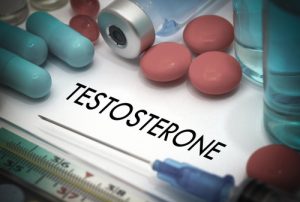Testosterone is a primary male hormone that plays a crucial role in the reproductive system, bone formation and energy production. While this condition is not life-threatening, it can interfere with a man’s quality of life.
Older patients experiencing hypogonadism may also experience an increase in depression and fatigue. Therefore, exploring further with a doctor the benefits and risks of testosterone replacement might be helpful.
Testosterone Levels in Hypogonadal Men
Hypogonadism is a medical condition where the body does not produce enough male sex hormones, including testosterone. Symptoms of hypogonadism include low libido, fatigue, decreased muscle mass and strength, poor cognition and reduced immunity. Early detection and treatment of hypogonadism may help manage these symptoms.
How Testosterone Treatment Works
If you’re an older man with low testosterone, you likely have one of several conditions that affect your testosterone levels. If your testosterone levels are low, you can take testosterone supplements to treat your symptoms.
Low testosterone levels are often a sign of an age-related condition called andropause. Andropause occurs when men stop producing testosterone, the hormone responsible for making male sex characteristics. Men during andropause often have a low sex drive, fatigue and decreased muscle mass.
Treatment with testosterone can help treat andropause, increase sex drive and increase muscle mass. Low testosterone levels can also cause decreased libido, erectile dysfunction, low mood and poor memory.
 Types of Testosterone Treatment
Types of Testosterone Treatment
There are a few different types of testosterone treatments. The most common treatments are oral testosterone therapy (HT) and injectable testosterone. Testosterone replacement therapy (TRT) is a treatment that uses a gel, patch or injection to deliver testosterone to your body.
There are three types of TRT. The first type, which is the most common, is through the skin with an applicator. Men can only use this type with low or no testicles. If you naturally have high levels of testosterone, this will not solve your problem.
The second type of delivery is by mouth with a pill, usually taken once daily as required. The third method is an injection directly into your stomach area, buttocks or thigh muscles every two weeks, depending on the dosage needed.
Benefits of Testosterone Treatment
A study conducted demonstrated that older men could increase their free testosterone levels while also maintaining their verbal memory as they age. The study, conducted on men aged 40 to 80, showed that the free testosterone levels of the participants significantly decreased with age but could be reversed by the administration of exogenous testosterone. Most importantly, the study demonstrated that older men could still preserve their verbal memory throughout testosterone treatment even at an advanced age.
Low testosterone results in weight gain, depression, decreased libido and osteoporosis. Clinical trials have demonstrated that men who can increase their testosterone levels can take on more physical activities than those who do not. It can lead to a significant increase in muscle mass and strength, which can cause an increase in one’s quality of life by preventing conditions like osteoporosis.
Oxytocin has resulted in having an effect on lowering cortisol levels, which is a hormone that produces a result of stress. Because of this, studies have demonstrated that men who supplement with testosterone can improve their mood and exert their mental energy when they feel stressed. Testosterone has resulted in issues such as depression and anxiety; however, it may be possible to overcome these conditions through testosterone therapy.
Testosterone is an essential hormone for a man’s body because it is responsible for maintaining an ideal weight, muscle mass and bone health. Low testosterone levels have resulted in weight gain and obesity, among other conditions.
When men feel stressed or depressed, their body releases more stress hormones and less testosterone. Studies have shown that having low testosterone levels can lead to more fat in various body parts.
Testosterone is a hormone responsible for many aspects of a man’s life, including quality of life. Men who suffer from low testosterone levels can experience weight gain and decreased libido, which can lead to less energy and less motivation in life. Testosterone treatment can alleviate these symptoms.
Risks Associated with Testosterone Treatment in Older Men
It is believed that androgens play a role in developing prostate cancer; however, the mechanism by which this occurs remains unknown. Furthermore, elevated testosterone levels are associated with an increased risk of developing aggressive prostate cancer or promoting progression to castration-resistant prostate cancer in patients with metastatic disease.
As testosterone is converted into dihydrotestosterone, it can raise androgen levels. These increases may include the development of a deep voice and increased facial hair, and changes in breast development and body hair growth in women. Such effects are reversible once testosterone levels return to normal by discontinuing treatment or lowering the doses of testosterone being administered while waiting for levels to recover.
Although testosterone is known to increase hematocrit and red blood cell count, the increase may not be enough to create any complications. However, testosterone treatments may increase the risk of developing clots in some cases.
Testosterone has been shown to lower insulin sensitivity and therefore worsen insulin resistance, leading to a higher risk of becoming obese and developing diabetes mellitus and metabolic syndrome.
Testosterone treatments may improve well-being and energy levels while decreasing depression, stress and irritability. However, there have been reports of increased mood swings and aggression in testosterone supplementation patients.
Although the benefits of testosterone treatment on blood pressure are controversial, studies have found that testosterone treatment can increase systolic blood pressure while increasing heart rate and potentially increasing the risk of developing both systolic and diastolic hypertension. To reduce the risk of developing hypertension, it is recommended that patients receive their injections and apply topical gels to their shoulders or abdomen rather than the genital region or lower buttocks.
Conclusion
Testosterone is a crucial hormone for a man’s body and allows them to live a more active life. Although increasing testosterone levels can lead to some risks, testosterone treatment in older men is worth it as it will benefit them significantly in the long run.
Although there are several risks associated with testosterone treatment in older men, the benefits of increased libido, muscle mass and bone health, among many other factors, makes it a good option.

 Types of Testosterone Treatment
Types of Testosterone Treatment



